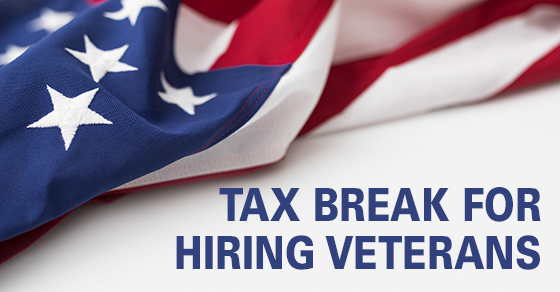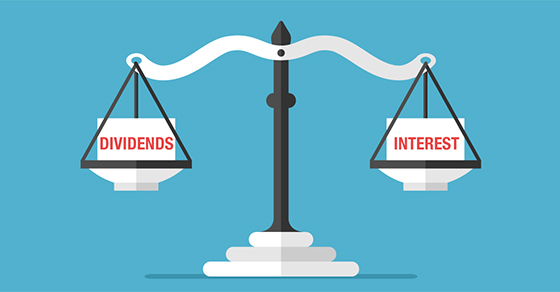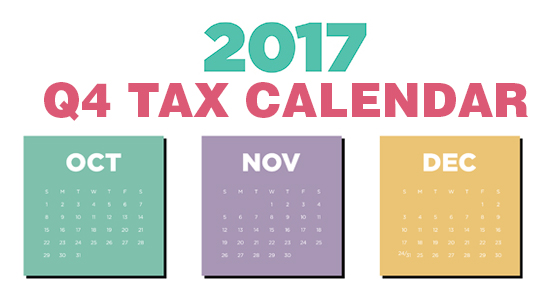Weekly Tax Brief
Even if your income is high, your family may be able to benefit from the 0% long-term capital gains rate
- Details
- Published: 29 November 2017 29 November 2017

We’re entering the giving season, and if making financial gifts to your loved ones is part of your plans — or if you’d simply like to reduce your capital gains tax — consider giving appreciated stock instead of cash this year. Doing so might allow you to eliminate all federal tax liability on the appreciation, or at least significantly reduce it.
Could the AMT boost your 2017 tax bill?
- Details
- Published: 21 November 2017 21 November 2017

A fundamental tax planning strategy is to accelerate deductible expenses into the current year. This typically will defer (and in some cases permanently reduce) your taxes. But there are exceptions. One is if the additional deductions this year trigger the alternative minimum tax (AMT).
2017 might be your last chance to hire veterans and claim a tax credit
- Details
- Published: 07 November 2017 07 November 2017

With Veterans Day on November 11, it’s an especially good time to think about the sacrifices veterans have made for us and how we can support them. One way businesses can support veterans is to hire them. The Work Opportunity tax credit (WOTC) can help businesses do just that, but it may not be available for hires made after this year.
Read more: 2017 might be your last chance to hire veterans and claim a tax credit
The ins and outs of tax on “income investments”
- Details
- Published: 31 October 2017 31 October 2017

Many investors, especially more risk-averse ones, hold much of their portfolios in “income investments” — those that pay interest or dividends, with less emphasis on growth in value. But all income investments aren’t alike when it comes to taxes. So it’s important to be aware of the different tax treatments when managing your income investments.
Retirement savings opportunity for the self-employed
- Details
- Published: 25 October 2017 25 October 2017

Did you know that if you’re self-employed you may be able to set up a retirement plan that allows you to contribute much more than you can contribute to an IRA or even an employer-sponsored 401(k)? There’s still time to set up such a plan for 2017, and it generally isn’t hard to do. So whether you’re a “full-time” independent contractor or you’re employed but earn some self-employment income on the side, consider setting up one of the following types of retirement plans this year.
Read more: Retirement savings opportunity for the self-employed
2 ACA taxes that may apply to your exec comp
- Details
- Published: 19 October 2017 19 October 2017

If you’re an executive or other key employee, you might be rewarded for your contributions to your company’s success with compensation such as restricted stock, stock options or nonqualified deferred compensation (NQDC). Tax planning for these forms of “exec comp,” however, is generally more complicated than for salaries, bonuses and traditional employee benefits.
Accelerate your retirement savings with a cash balance plan
- Details
- Published: 16 October 2017 16 October 2017

Business owners may not be able to set aside as much as they’d like in tax-advantaged retirement plans. Typically, they’re older and more highly compensated than their employees, but restrictions on contributions to 401(k) and profit-sharing plans can hamper retirement-planning efforts. One solution may be a cash balance plan.
Read more: Accelerate your retirement savings with a cash balance plan
“Bunching” medical expenses will be a tax-smart strategy for many in 2017
- Details
- Published: 03 October 2017 03 October 2017

Various limits apply to most tax deductions, and one type of limit is a “floor,” which means expenses are deductible only if they exceed that floor (typically a specific percentage of your income). One example is the medical expense deduction.
Read more: “Bunching” medical expenses will be a tax-smart strategy for many in 2017
Why you should boost your 401(k) contribution rate between now and year end
- Details
- Published: 19 September 2017 19 September 2017

One important step to both reducing taxes and saving for retirement is to contribute to a tax-advantaged retirement plan. If your employer offers a 401(k) plan, contributing to that is likely your best first step.
Read more: Why you should boost your 401(k) contribution rate between now and year end
2017 Q4 tax calendar: Key deadlines for businesses and other employers
- Details
- Published: 12 September 2017 12 September 2017

Here are some of the key tax-related deadlines affecting businesses and other employers during the fourth quarter of 2017.
Read more: 2017 Q4 tax calendar: Key deadlines for businesses and other employers





